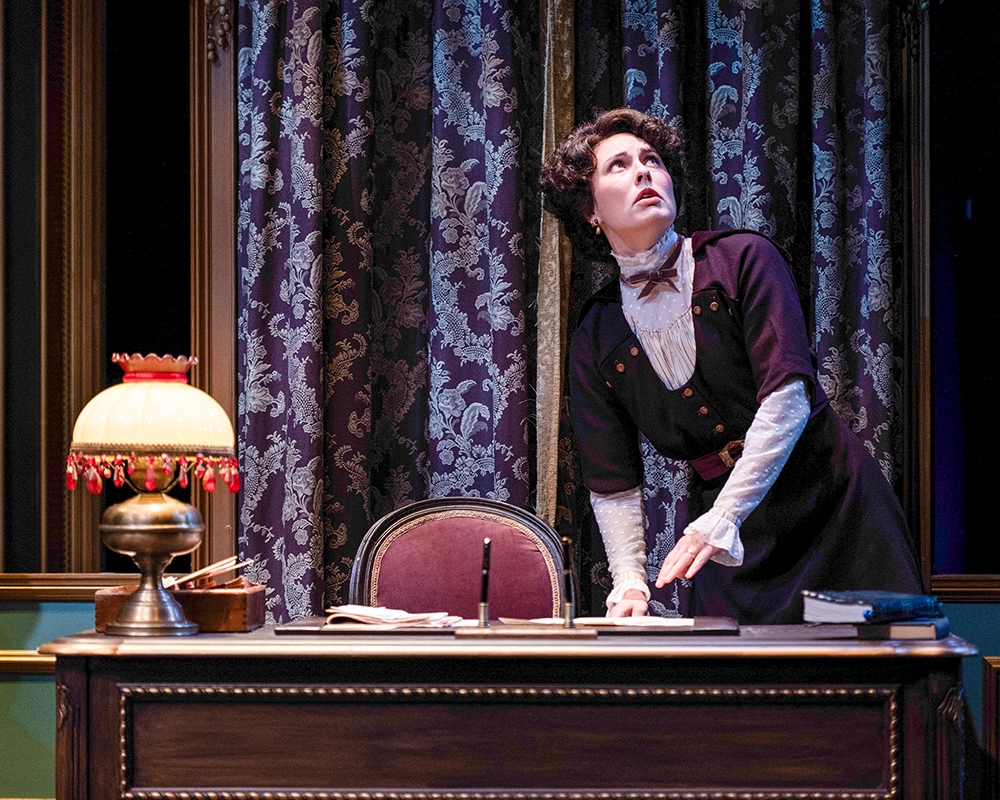‘The Apprentice’ is Donald Trump’s Ugly Origin Story
Sebastian Stan captures the gestalt of Trump's ego, ambition, and bluster in Ali Abbasi's biting biopic "The Apprentice."

Anyone who knows the public story of Roy Cohn and his protégé Donald Trump is likely to enter director Ali Abbasi’s The Apprentice anticipating one particular turning point in the pair’s complicated relationship.
Donald turning his back on Roy, when the notorious fixer was dying of an AIDS-related illness, wasn’t like the offhanded betrayal of a business interest, wife, or moral principle. Although, Abbasi (Holy Spider) and screenwriter Gabriel Sherman (Independence Day: Resurgence) supply ample scenes of their Donald, embodied spectacularly by Sebastian Stan, betraying trusts.
Ranging around the film’s glamorous yet grimy 1970s/1980s New York City, Donald indulges in a near-daily diet of deceit and disloyalty, and absolutely no one is exempt from his dishonesty. But Roy Cohn, the attorney who takes on a dead-end case for Don and his browbeating dad Fred (Martin Donovan), thinks he’ll be different.
Or, he might not be thinking above the belt at all the night he invites the tall, blonde, and, in his word, handsome, up-and-coming real estate heir to his booth inside one of the city’s most exclusive social clubs.
Roy — who must be seething in the afterlife over being remembered as one of history’s most self-hating homosexuals — was closeted then, of course, dining like a boss with mobsters and tycoons. Still, Succession star Jeremy Strong, who is uncannily locked-in here, plays Roy as a fairly obvious, leering queen. Roy talks tough, but clearly he’s enchanted by ambitious but unseasoned Donald, whom he takes underwing as a pupil in Machiavellian machination.
First, Roy cements their bond by getting Donald a better outcome than anybody in the Trump Organization could have hoped for in their potentially business-ending civil rights violations case. Fred and Donald stand accused by the Justice Department of discriminating against prospective Black tenants applying to rent in their properties, which the Trumps admittedly do.
Fred Trump shouting, “How can I be a racist when I have a Black driver?” sums up the man’s level of self-awareness on the subject. And, per Stan’s remarkably sincere portrayal of Don as his father’s son, the big apple didn’t fall too far from the crooked tree.
Yet, the film conveys a sense that Donald might have manifested some more decent, or at least, less corrupt mode of doing business had he not crossed paths with Cohn. An attentive mentor, Cohn teaches Donald his three rules of winning. First, attack, attack, attack. Second, admit nothing, deny everything. Third, and most essentially, no matter what happens, whether you win or don’t, never admit defeat.

Practically anyone alive can recognize Roy’s toxic tenets remain consistent in Donald’s m.o. to this day. The film evinces an acute awareness of how Roy’s tutelage early in Donald’s rise as a real estate titan and celebrity laid the foundation for the champion bullshitter who would one day enter politics.
The film also does Donald a favor by positing his big, blustering personality as an extension of his New Yorker spirit. Pounding the city streets, as punk rock shreds on the soundtrack, or rambling around in his Cadillac to Trump properties collecting rents, he’s depicted as a striver with dreams of building big and leaving a mark on Manhattan. Some may be surprised or offended at how the movie exalts his success.
But Donald is undeniably successful at developing real estate in New York. That doesn’t make him a hero, even in this bio, which is based on real events and individuals, though the filmmakers acknowledge that “some events and names of real individuals have been fictionalized for dramatic purposes.”
The more successful Donald becomes, the more proudly and flagrantly amoral he turns out to be, willing to sell out his family or screw over a friend.
He initially thinks he’s found a love match in Czech model Ivana Zelníčková (Borat 2 Oscar nominee Maria Bakalova, no notes), whom he pursues and marries. But he flips on her, too, undermining her position as a top executive in his organization, and, in a harrowingly brutal turn, sexually assaulting her on the floor of their Trump Tower apartment.
Ironically, Donald’s most egregious — or potentially embarrassing — acts dramatized in the film have long been public knowledge, including the betrayal of Roy Cohn. And when that particular juncture arrives, perhaps the movie’s greatest surprise is that it elicits sympathy for Cohn, wasting away from AIDS while publicly claiming to be sick with liver cancer.
He seems a fool to have expected loyalty from someone he taught to trust no one. Ultimately, Abbasi and Sherman offer a pretty thin plot for this slightly overlong tale of an apprentice rising to best his master. But the potent conclusion, in which Trump imparts his three rules of winning, drives home the point that Roy Cohn was not the last man Trump would take for a fool.
The Apprentice (★★★☆☆) is rated R, and is playing in theaters nationwide. Visit www.fandango.com.
Support Metro Weekly’s Journalism
These are challenging times for news organizations. And yet it’s crucial we stay active and provide vital resources and information to both our local readers and the world. So won’t you please take a moment and consider supporting Metro Weekly with a membership? For as little as $5 a month, you can help ensure Metro Weekly magazine and MetroWeekly.com remain free, viable resources as we provide the best, most diverse, culturally-resonant LGBTQ coverage in both the D.C. region and around the world. Memberships come with exclusive perks and discounts, your own personal digital delivery of each week’s magazine (and an archive), access to our Member's Lounge when it launches this fall, and exclusive members-only items like Metro Weekly Membership Mugs and Tote Bags! Check out all our membership levels here and please join us today!




























You must be logged in to post a comment.